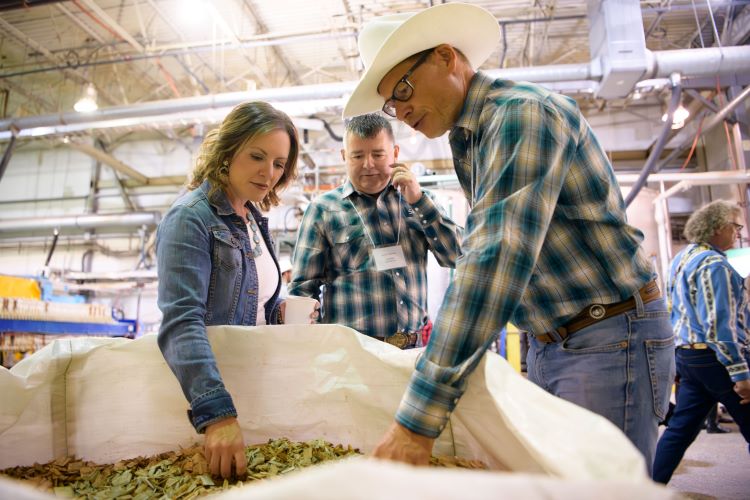July 17, 2024 (press release) –

Alberta’s government is investing $44 million to help small and medium businesses reduce emissions and lower energy costs.
Small and medium businesses are the backbone of Alberta’s economy, but they often face financial, timing and other barriers to advancing and commercializing creative, transformative technologies that benefit their operations.
Alberta’s government is investing $44 million to help 21 small and medium-sized businesses get their innovative, first-of-kind projects off the ground. This includes new technology to help power generation, agriculture, forestry, oil and gas, fertilizer, construction, electricity and other sectors. The funding, delivered through Emissions Reduction Alberta’s Emerging Innovators Challenge, will create jobs, keep businesses competitive and reduce emissions.
“We are giving Alberta’s small and medium businesses the funding they need to launch their innovation-driven technologies faster and grow their startups to create jobs, save money and lower emissions here at home and around the world.”
If successful, the 21 projects are projected to create more than 875 jobs and contribute $238 million to Alberta’s GDP by 2027. The technology used in each of these projects is expected to reduce 206,000 tonnes of emissions per year, 1.2 million tonnes by 2030, and 5 million tonnes by 2050.
Minister Schulz, SixRing Chief Technology Officer Dr. Markus Weissenberger and SixRing Chief Executive Officer Scott Treadwell explore the company’s biomass technology.
Alberta is recognized as a leader in innovation, and this is reflected in the range of projects receiving funding. This includes funding for a robotic, AI-powered horticultural lighting system in Calgary and Medicine Hat that will more efficiently grow plants while reducing energy use, a power generation system for the oil sands that captures, stores and converts energy in Wood Buffalo, and piloting an innovative new satellite system that detects methane emissions from space.
“Small and medium-sized enterprises are critical to Alberta’s economy. The Government of Alberta’s investment through Emissions Reduction Alberta’s Emerging Innovators Challenge will provide 21 small and medium enterprises with access to capital and support services, allowing them to commercialize their technology, increase their competitiveness, and reduce emissions.”
The new funding also includes $5 million to help SixRing expand its current biomass testing facility to a commercial operation in Lethbridge County. SixRing transforms organic waste into sustainable products, taking non-food biomass such as agricultural straws and forest sector waste residues and turning it into high-value advanced biofuels, such as drop-in renewable diesel, second generation bioethanol, sustainable aviation fuel, bio-chemicals and more.
“Government of Alberta financial support through Emissions Reduction Alberta is an instrumental part of the process to bring private investors and key partners to the table and build a first-of-kind commercial demonstration facility in Alberta. The SixRing bioconversion process has the potential to unlock the value of biomass while materially reducing emissions globally. This is a proud example of Alberta ingenuity helping to change the world.”
Quick facts
- Small businesses are essential to the vibrancy and success of Alberta’s local communities and economy, making up about 96 per cent of businesses in the province and employing a major part of our labour force.
- Small enterprises are organizations with fewer than 50 employees.
- Medium enterprises are organizations with fewer than 500 employees.
- More than half of the funded projects in Emissions Reduction Alberta’s portfolio are led by small and medium enterprises.
- Funding amounts for the successful Emerging Innovators Challenge projects range from $250,000 to $5 million, and each project will be piloted, demonstrated or deployed within Alberta.
- The 21 projects were selected through Emissions Reduction Alberta’s competitive review process, where a team of experts in science, engineering, business development, commercialization, financing, and greenhouse gas quantification conduct an independent, rigorous, transparent review overseen by a fairness monitor.
* All content is copyrighted by Industry Intelligence, or the original respective author or source. You may not recirculate, redistribute or publish the analysis and presentation included in the service without Industry Intelligence's prior written consent. Please review our terms of use.